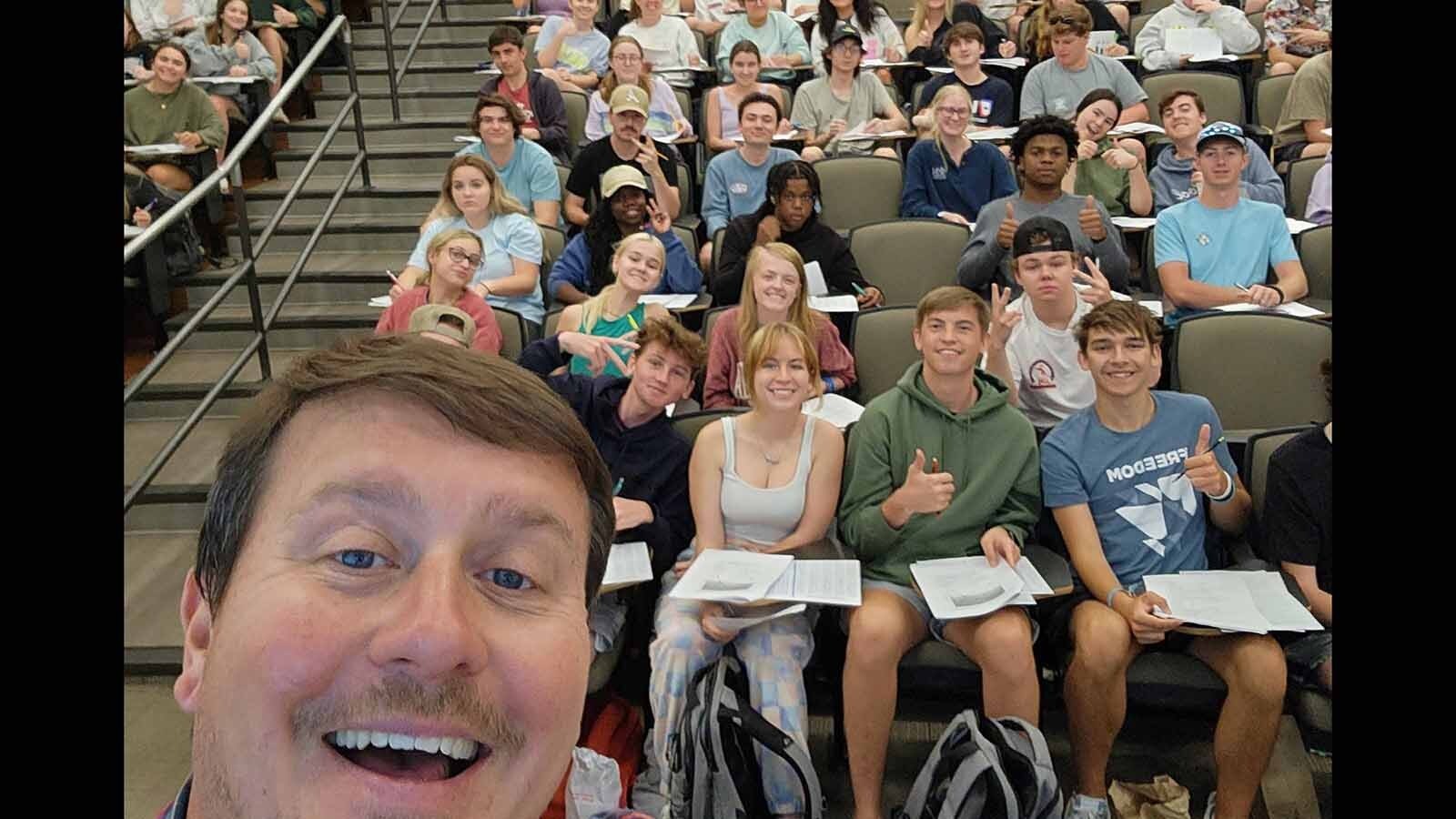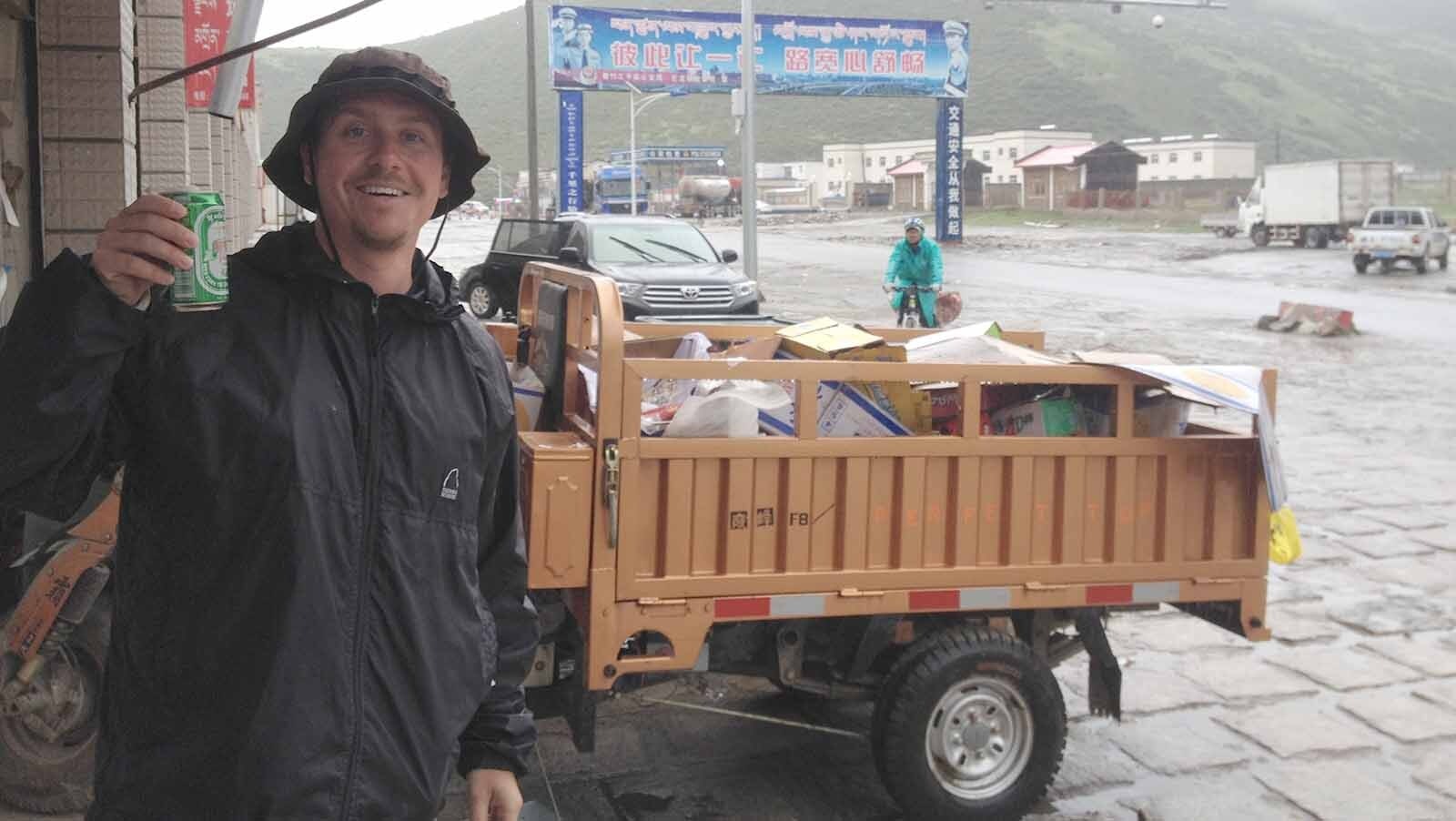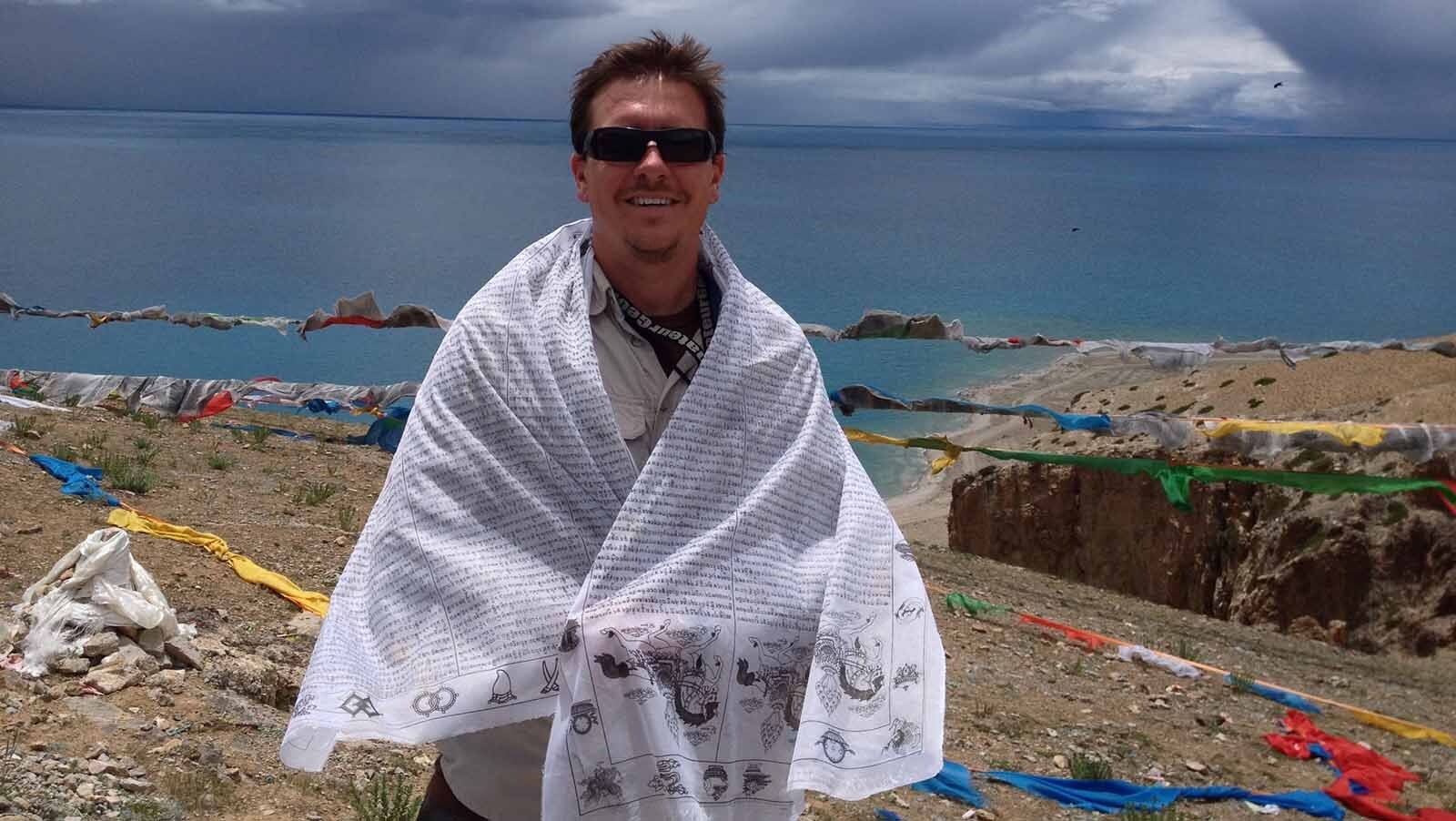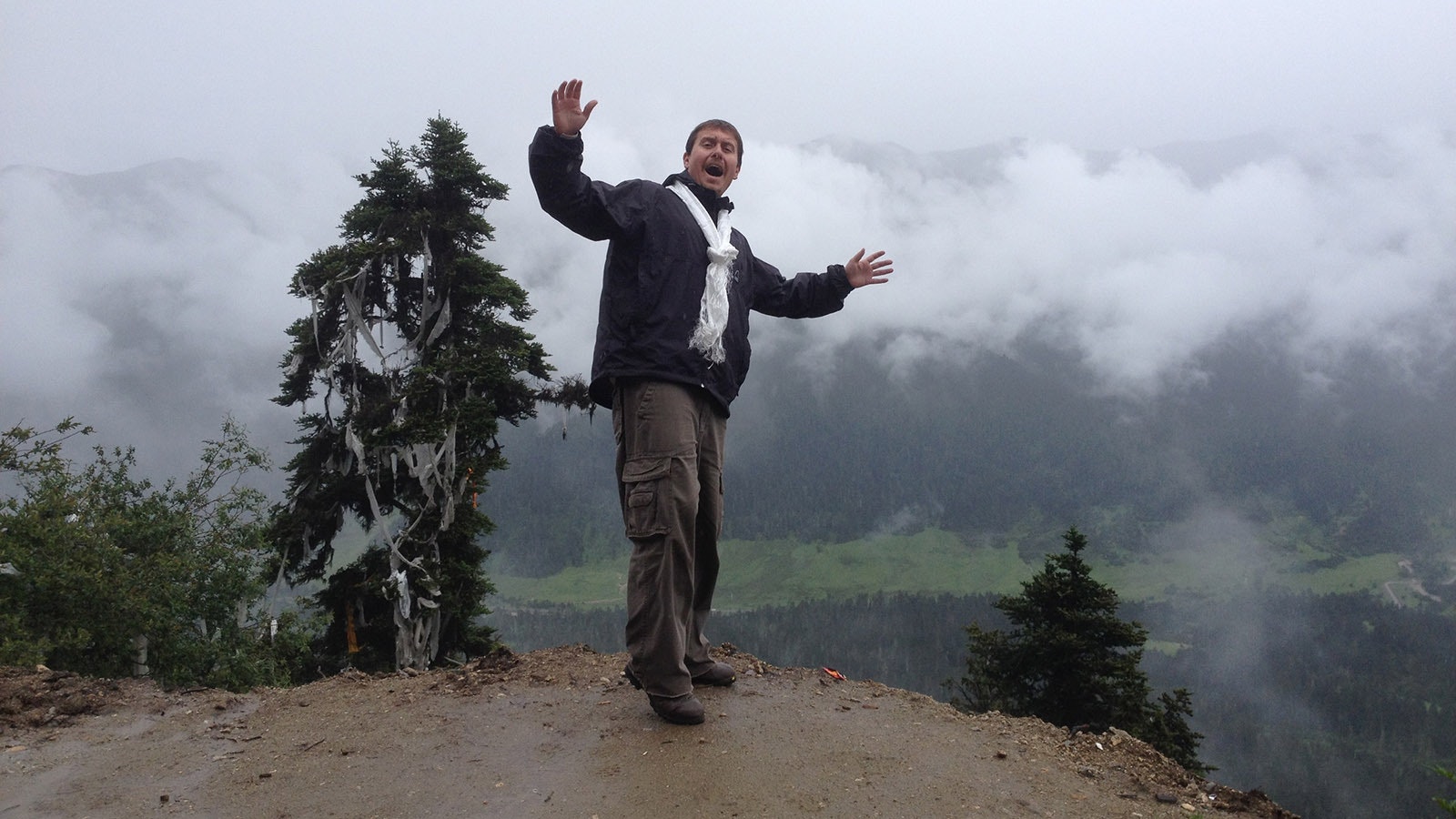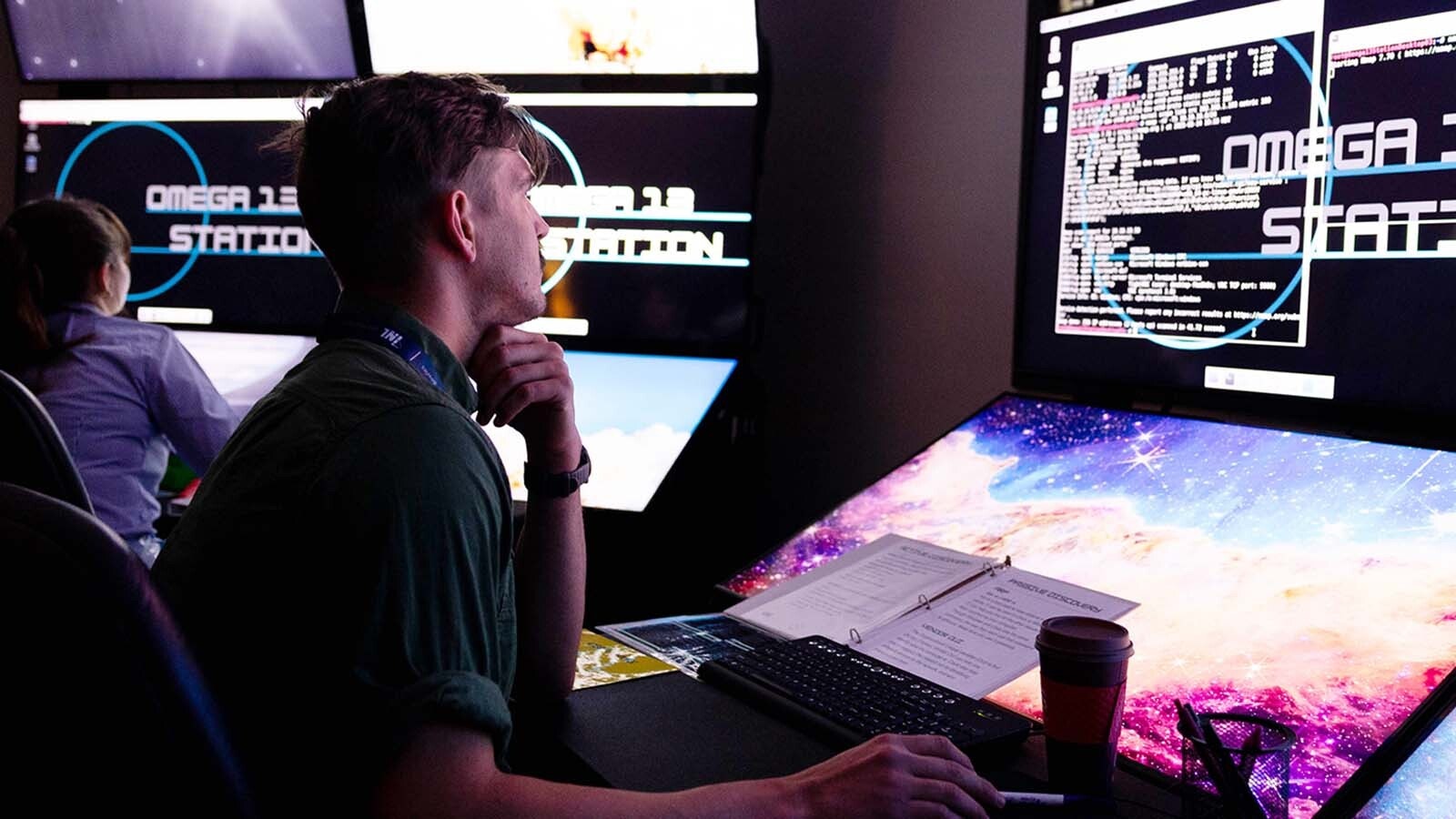Geochemistry professor Dr. Matt Wielicki is a loud skeptic of the dominating narratives on climate. But in some circles, speaking his name is a call for pitchforks and torches.
Wielicki’s crime is questioning the hyperbole surrounding the climate crisis.
He doesn’t dispute that carbon dioxide impacts climate and that temperatures are rising.
He argues that there’s little evidence that the impacts of climate change are creating a catastrophe that could reasonably be described as a crisis.
Smears
Penn State Professor of Atmospheric Science Dr. Micheal E. Mann — famous for the “hockey stick” graph of temperatures for the last 2,000 years —- smeared Wielicki’s career in academia.
Media Matters, a George Soros-funded lobbying organization, wrote a hit piece on his growing popularity, accusing him of spreading “climate disinformation” based on the accusations of an anonymous Twitter account.
And multiple climate scientists across Twitter have included him in a coordinated effort to block accounts that dispute the climate crisis as part of a campaign to game the platform’s analytics so that these accounts have lower levels of engagement.
While those who promote the climate-crisis narrative consider him a peddler of falsehoods, he has a large following on social media, he’s received largely favorable reviews from his students, and he’s made frequent appearances on FOX News and other media organizations which allow for actual debate on a topic, rather than adherence to one allowed narrative.

Fleeing Communism
Wielicki was born in communist Poland, and his family’s efforts to escape to the West planted seeds that grew into a tendency to stand up to the status quo.
Both his parents were educated in the Polish university system before the Iron Curtain fell, and they lived under the menacing eye of the government. It was a time when academics who questioned the party line ended up behind bars.
“There was no academic freedom. There was no freedom of expression,” Wielicki told Cowboy State Daily.
When Wielicki was 4 years old, his father was allowed to go to the United States as a visiting professor at Southern Illinois University. The day Wielicki, his mother and brother were supposed to visit his father in Illinois, Poland declared martial law.
“I remember tanks rolling down the street in Warsaw, and they basically told us we can’t go,” Wielicki said.
Starting Over
Eventually, the three of them were able to work their way through the Polish bureaucracy to join Wielicki’s father in the U.S. After all they went through for what was supposed to be a three-week visit, the family decided they couldn’t go back to Poland.
“My father looked my mom in the face and said, ‘This is all we got. We’re starting a new life here with these few suitcases,’” Wielicki said.
They still have those suitcases.
The family eventually received asylum and moved to Chicago, “like all good Polish people,” Wielicki joked, and later got their citizenship.
The experience of escaping a communist country made him wary of authority his whole life.
“I think it’s definitely influenced the way I view the system we’re in now,” he said.
College Bound
Wielicki’s father later landed a tenure-track position at California State University-Fresno, where he would work for 30 years and retire.
That’s where Wielicki grew up.
The family went to Mogadishu, Somalia, as part of the Sister Cities International program when Wielicki was in second grade. They were over there to help build some infrastructure and to develop information systems at the airport.
“This is back in the punch-card days. We still have a million of them. It’s what my mom uses for grocery lists,” Wielicki said.
He graduated from high school in 1996. Having two parents with advanced degrees, he was college bound from there.
He studied biochemistry and eventually pursued a degree in geochemistry starting in 2008 at the University of California Los Angeles.
Long-Term Implications
It was at that point Wielicki said he started to get some uncomfortable vibes from the world of academia.
While he was getting his Ph.D., he pursued teaching positions at community colleges. As part of the application process, he had to make diversity statements.
“As a white guy, I felt a little strange, but I always could play up the immigrant card,” Wielicki said. “But the truth is, I was just jumping through the hoops. This is what I have to do, so I did it. I wasn’t really thinking about the long-term implications.”
He said that began to change when his wife had their first child in 2015. He started to think about the societal ramifications of what were essentially loyalty statements to an ideology he didn’t entirely agree with.
“It seemed to me that they were repeating the mistakes of my home country,” Wielicki said.
He started to question basing scholastic achievement on factors other than merit, and he began raising his concerns with other faculty members.
“There was no free exchange of ideas,” he said about how his views were received. “If you just bring up these points, you’re basically shunned.”
Bummed Out
In 2016, he landed an assistant professor position at the University of Alabama in Tuscaloosa, where he taught earth science.
Wielicki wasn’t speaking up too loudly at that point about his concerns over the doomsday climate change narrative that was being pushed, as he wanted to get tenure.
At the same time, he wanted a classroom where success was based on merit — such as which students worked in his lab — in an environment that more and more equated such decisions with racism.
At the same time, white males were being blamed for all the world’s problems, he said. With two white sons at home, he began to worry about participating in the ideology that advanced the prejudice against white males and undermined a meritocracy.
“It’s not helping to move ourselves into what we would think of as a free, capitalist society where we’re judging people on their work ethic,” Wielicki said. “Instead, we’re judging people on immutable characteristics over which they have no control. And that bummed me out.”
Escalation
The situation began to escalate with the COVID pandemic and the death of George Floyd, a black man in Minneapolis who died while being arrested for attempting to make a purchase with a fake $20 bill.
The incident led to the rise of Black Lives Matter and the 2020 summer of riots.
Wielicki said that, up until that point, the science, technology and math (STEM) fields had been largely immune to the worst of the wokeness of academia.
“It became a singular focus in academia that everything was going to be framed through this lens of race,” Wielicki said.
He said he had white students who didn’t feel they were on the same playing field with students from other backgrounds, despite being told how privileged they are, and he had black students who felt they were treated as perpetual charity cases.
“They felt they were very capable of succeeding on their own and didn’t need this extra help,” Wielicki said.
His Asian students, who were overrepresented in STEM, but still considered underrepresented in American society “were white-adjacent. And so everybody’s anxiety was going up,” Wielicki said.
Drumbeat Of Catastrophism
At the same time, Wielicki said he began to talk to his students about climate change.
In an interview in December, Wielicki said he’d have class over Zoom during the pandemic lockdown days, and he started to learn some concerning things about how the students viewed their future with climate change.
Many weren’t planning on raising families, fearing the world would end or their children would further its demise. They had little ambition to succeed in a world that was doomed. He said he started to see there was a real mental health crisis among college students.
“And part of it is the neverending drumbeat of catastrophism,” Wielicki said. “Every weather event is catastrophized as more evidence the planet is going to hell.”
The problem was that the science didn’t support such a conclusion, he said. Hurricane frequency and intensity isn’t increasing. The normalized cost of disasters from natural disasters has declined, and the number of climate related deaths has fallen 98% since 1920.
By many other markers, the human race is doing great, and Wielicki wanted his students to believe in their future.
So, he began to dispute the catastrophizing of the climate crisis movement on social media, including TikTok, YouTube and Twitter.
Labels
For challenging the climate-crisis narrative, Wielicki’s been labeled a “science denier.” He calls himself a climate realist.
For questioning the wisdom of diversity, equity and inclusion ideology, and arguing that it doesn’t create a more equal society, he’s been labeled a right-wing racist.
Wielicki is probably best described as anti-authoritarian. On his Twitter feed, he’s argued for positions that many liberals would support, including the legalization of marijuana and making legal immigration easier.
But giving interviews on Fox and One America News didn’t make it easy for him in the world of academia, where conformity with liberal politics is more-or-less required. After years of dealing with the backlash, he decided to leave.
This month, he gave his last class at the University of Alabama.
YouTube Lectures
Wielicki isn’t sure what’s next for him and his family. He’s been managing some rental property he owns. He’s flirted with the idea of running a golf cart business in Colorado.
While he figures out what’s next for his career, he continues to share his views.
He’s running a YouTube channel, where he’s producing a free lecture series on earth science for those who want to get an education in the subject without enrolling in university courses. Students can ask questions in the comments. He said it’s becoming a viable option for independent-minded academics.
“The opportunities for academics have changed so dramatically in the last decade or so with things like social media, You can see things like what [conservative Canadian psychologist] Jordan Peterson is doing. I think there's a hunger for that,” Wielicki said.
Amazing Advancements
He also writes articles on his Substack, “Irrational Fear,” where he continues to dispute the idea of a climate crisis. He’s also making videos on TikTok.
His hope is to impress upon people that the world is a wonderful place and the future is full of possibilities.
“If I look at the human condition, I smile,” Wielicki said. “I think of all the amazing advancements. It doesn't mean that people aren't suffering. It doesn't mean that there isn't still a lot of work to do.
“But what a terrible way to go through life and to feel motivated to help people if you really think that just everything is going to hell in a hand basket.”
Contact Kevin Killough at Kevin@CowboyStateDaily.com

